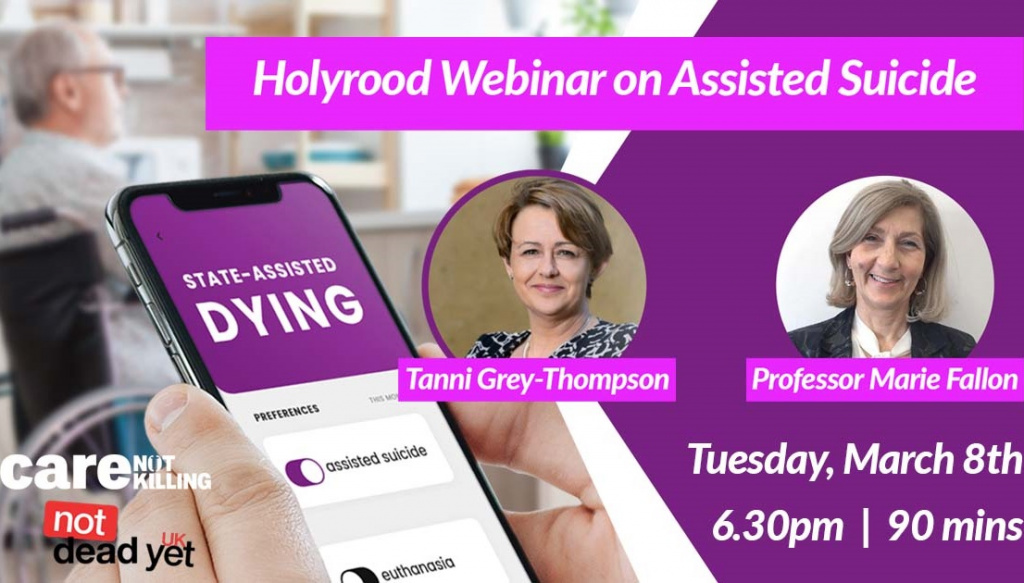A risk inherent in the Assisted Dying Bill (link)
EILEEN McCartin (letters, January 7) makes an excellent point about the dangers of the 'slippery slope' associated with legalising assisted suicide or euthanasia, as evidenced from the experiences of other countries where laws have been extended to include disabled people, children and those with mental illnesses.
She states that many Liberal Democrats oppose Liam McArthur's proposals but she is incorrect in claiming that "the current Assisted Dying Bill … in no way reflects Lib Dem policy". Sadly, the Scottish Liberal Democrats did adopt just such a policy in 2015, which was reaffirmed in 2019 by the UK Liberal Democrats in a motion which made specific reference to Mr McArthur's proposed Bill.
Of course, like all previous attempts to legalise assisted suicide, Mr McArthur has failed to address the concerns that exist about how to safeguard those who are vulnerable to pressure being exerted by others with questionable motives, such as access to a potential inheritance or the desire to free up beds in hospitals or care homes.
For example, most of those gaining assistance from doctors to commit suicide in Oregon now regularly cite the "fear of being a burden on family, friends or caregivers" as their reason for seeking death.
The bill would provide a cheap solution for policy-makers or NHS managers, enabling them to sidestep their obligations to address the unmet need for palliative care. It would make the situation worse.
The experience of those countries which have gone down the assisted suicide or euthanasia route shows that the development of palliative care is impeded when such legislation is in place.
Faced with shortages of NHS resources, an overstretched workforce due to the pandemic and the prospect of huge savings to be made by enabling patients to end their lives prematurely, can we really trust politicians to come up with a law containing adequate safeguards which will prevent abuses from occurring?
Dr Gordon Macdonald, CEO, Care Not Killing, Glasgow.
The letter Gordon refers to is this one:
Letters: Assisted dying is your choice - but don't ask for others' help (link)
THE HERALD of January 5 carried two items on the subject of assisted dying.
One related to comments by the former Scottish Liberal Democrat leader Jim Wallace, now the Moderator of the General Assembly, and the other was an opinion article by Iain Macwhirter ("We must bring honesty to the debate about assisted dying").
Firstly, the current Assisted Dying Bill is a private member's bill put forward by one LibDem MSP, and in no way reflects LibDem party policy.
There are many members and supporters of the LibDems who firmly oppose the proposals being put forward in this bill.
It is not just people with religious convictions who oppose euthanasia. It is opposed also by many who see what is happening in other countries that have previously brought in euthanasia laws, with all their supposed safeguards, who are now widening out proposals for those who might be included in categories able to access euthanasia services.
The fact that some people want this service doesn't mean we should legislate for it.
My own view is that we should never legislate to say that a member of the medical profession must kill another human being, even if that person wants it.
There are those who say that many safeguards will be put in place, both for the medical profession and to protect those who may, in time, be vulnerable either to persuasion by others, directly or indirectly, to end their lives.
Reading Iain Macwhirter's article, while he (I think) is suggesting we might want to go down this road, is as good an argument as any for reasons why we absolutely should not agree to this legislation.
Actions in The Netherlands, Belgium and elsewhere show that, once started, this opens the way to the "slippery slope", as some people call it. It's worth reading.
If you want to commit suicide, so be it. If you want to use the services of Dignitas, so be it. Sad, but that is your choice.
But don't ask anyone else to do it for you, and wrap up the actions in words which pretend it is something else. And don't legislate to allow this action to be taken by the population at large.
This is about killing another human being, and is not an action which you should ask anyone else to do for you, particularly in our medical profession.
Councillor Eileen McCartin MBE, Scottish Liberal Democrats, Paisley.
(Image: licensed via FreeImages.com)








